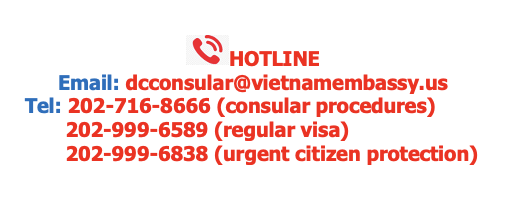Vietnamese catfish safer than American: surveys body
Copyright 2003 Financial Times Information All rights reserved Global News
Wire - Asia Africa Intelligence Wire Copyright 2003 Vietnam News Briefs
Vietnam News Briefs September 11, 2003 LENGTH: 284 words HEADLINE:
AGRICULTURE: SURVEYS BODY: Copyright 2003 Financial Times Information All rights reserved Global News
Wire - Asia Africa Intelligence Wire Copyright 2003 Vietnam News Briefs
Vietnam News Briefs September 11, 2003 LENGTH: 284 words HEADLINE:
AGRICULTURE: VIETNAMESE CATFISH SAFER THAN AMERICAN: SURVEYS BODY: Dr Arnold Schecter and his group in Australia recently carried research into Vietnamese seafood, particularly catfish, exported to foreign markets and proved that its antibiotic residues and dioxin content were much lower than in America, said Dr Nguyen Van Tuan, an expert from the Garvan Medical Institute in Sydney, Australia. In response to claims by US framers, particularly catfish processors, that basa imported from Vietnam was infected with dioxin, Dr Schecter tested 20-30 samples of catfish from both countries, which showed that Vietnamese basa contained only 0.01ppt of dioxin residue while US catfish had 1.7ppt - 170 times higher. Dr Schecter said that Vietnamese farmers understood the situation and focused on research, even though research methods in the country were under par with international standards, especially in epidemiological methods. The research also said that the dioxin content in American cream, milk and butter were 0.33, 0.16 and 1.1, respectively. Dioxin was not from the land, he said, but from industrial waste such as that produced by the burning of medical instruments. Universities in Arkansas and Mississippi will conduct research on the differences between domestic catfish and their Vietnamese counterparts under a grant from the Department of Agriculture. The US catfish industry could study to promote the locally-grown fish, using their promotion programs to highlight the differences in US catfish and ones coming from Vietnam, said Kwamena Quagrainie, a professor at the University of Arkansas at Pine Bluff.
Dr Arnold Schecter and his group in Australia recently carried research into
Vietnamese seafood, particularly catfish, exported to foreign markets and
proved that its antibiotic residues and dioxin content were much lower than
in America, said Dr Nguyen Van Tuan, an expert from the Garvan Medical
Institute in Sydney, Australia. In response to claims by US framers, particularly catfish processors, that basa imported from Vietnam was
infected with dioxin, Dr Schecter tested 20-30 samples of catfish from both
countries, which showed that Vietnamese basa contained only 0.01ppt of
dioxin residue while US catfish had 1.7ppt - 170 times higher. Dr Schecter
said that Vietnamese farmers understood the situation and focused on
research, even though research methods in the country were under par with international standards, especially in epidemiological methods. The
research also said that the dioxin content in American cream, milk and
butter were 0.33, 0.16 and 1.1, respectively. Dioxin was not from the land,
he said, but from industrial waste such as that produced by the burning of
medical instruments. Universities in Arkansas and Mississippi will conduct
research on the differences between domestic catfish and their Vietnamese
counterparts under a grant from the Department of Agriculture. The US
catfish industry could study to promote the locally-grown fish, using their
promotion programs to highlight the differences in US catfish and ones
coming from Vietnam, said Kwamena Quagrainie, a professor at the University of Arkansas at Pine Bluff.



